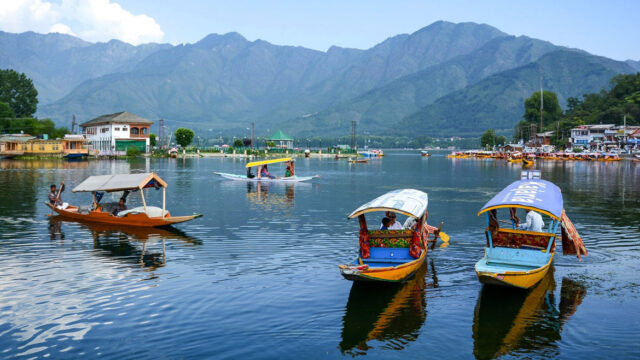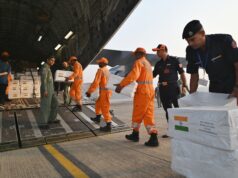 Sri Nagar : For decades men from Jammu and Kashmir have seasonally migrated from the freezing villages and towns of the valley to mainland India, to escape the harsh winter climates and find work or sell their wares. Most afternoon siestas during winters in northern India are punctured by the welcome call of a Kashmiri man selling the famous embroidered kashmiri shawls or the delicious nuts grown in abundance in the valley.
Sri Nagar : For decades men from Jammu and Kashmir have seasonally migrated from the freezing villages and towns of the valley to mainland India, to escape the harsh winter climates and find work or sell their wares. Most afternoon siestas during winters in northern India are punctured by the welcome call of a Kashmiri man selling the famous embroidered kashmiri shawls or the delicious nuts grown in abundance in the valley.
As the snow melts in the Himalayas the men return back to their homes with pocketful of memories and some extra cash. This seasonal migration is a result more of push factors rather than pull factors. Political instability, terrorism, shutdowns in the Kashmir region have stunted economic growth and stamped out most chances of gainful local employment.
In 2019, the Government of India through a constitutional amendment hoped to reinvigorate efforts for economic development and put an end to the cycle of violence, fueled by cross border terrorism that had engulfed the valley for nearly three decades.
One of the ways that the Indian Government has identified to set the region on a path of growth is to create a local industrial base and a workforce with skills who can be gainfully employed locally. Since 2019, the region has seen an unprecedented change in policy and execution in these two areas.
Firstly the Government has come up with a new industrial policy which puts it in the role of a facilitator rather than a regulator. The Industrial Policy 2021-30 and its procedural guidelines came into effect in April 2021, with the aim to provide incentives to all new industrial units being set up in the region as well as any existing units undertaking substantial expansion.
On the parallel, the Government has also introduced a new skill development program with a target of providing training to 10,000 youth to enhance their skills for the job- market. Hundreds of new vocational centers and ICT labs have been established. Various corporate houses, universities and NGOs have joined ranks with the Government in this endeavor. To ensure that women get equal opportunities and benefits in the skill development programs, gender parity is being given special focus.
India has substantially improved its ‘ease of doing business’ ranking in the world in the last six years, by focusing on simplifying government procedure and taxes, easing licenses and building single-point clearance systems.
Similar efforts are being duplicated in Jammu and Kashmir with a new land policy which sets a time limit for clearance of land allotment for industrial projects and infrastructure development. A new single-point clearance system has also been established while reducing the number of approvals required from the Government to the bare minimum.
Along with industry, there is a renewed focus on agriculture and horticulture sector,
which employs the largest segment of people in the region. Geographical indication (GI) tag has been given to export driven agricultural products such as the Kashmiri saffron. While a geographical indication (GI) tag has been sought for one of the costliest mushrooms in the world that grows in Jammu and Kashmir’s Doda district. Locally called Gucchi, or Morel, the mushroom, priced at over USD 250 per kilogram, is a forest produce collected by local farmers and tribesmen.
With these achievements in the pocket, Jammu and Kashmir has firmly planted its feet on the path of growth and prosperity, this year its GDP is forecast to grow at 7.5 percent.










